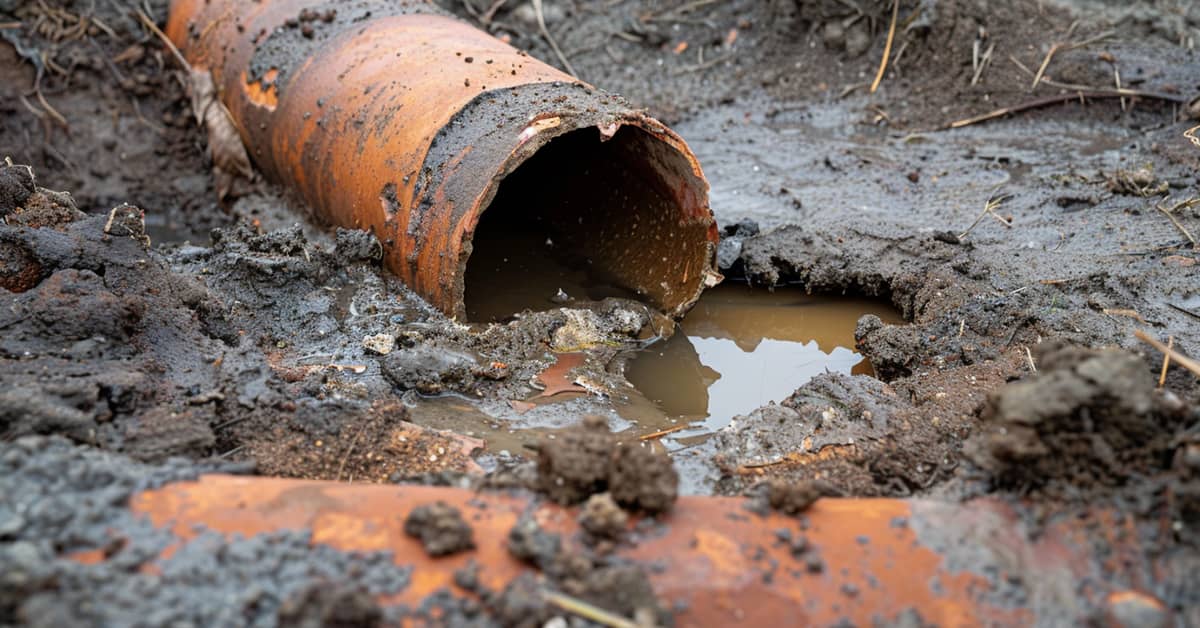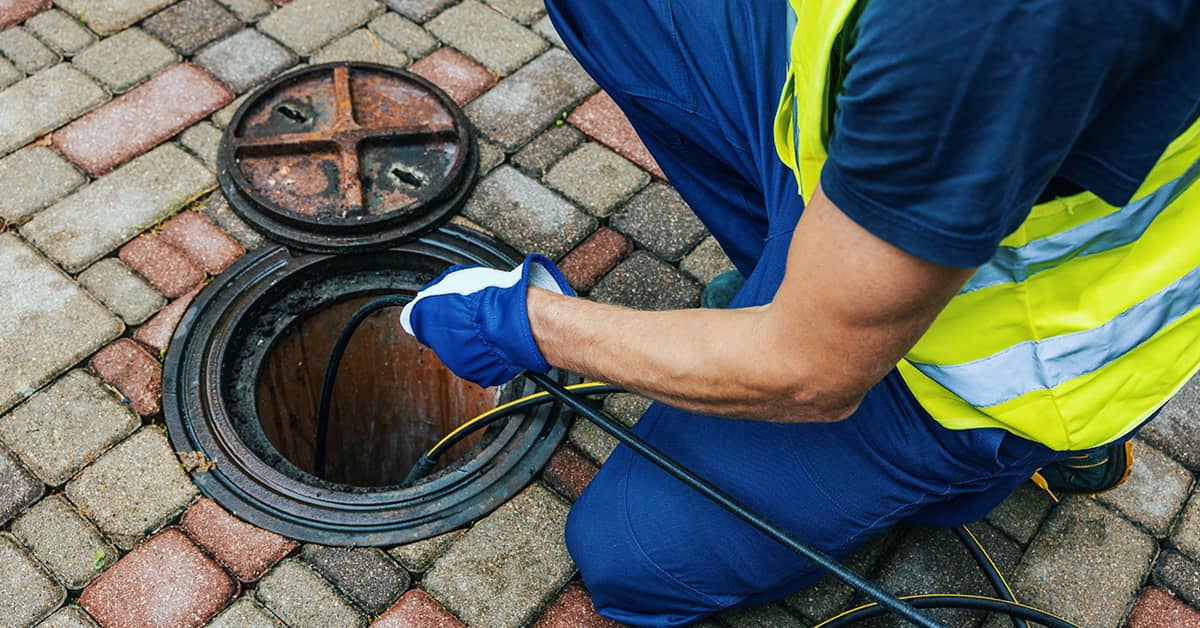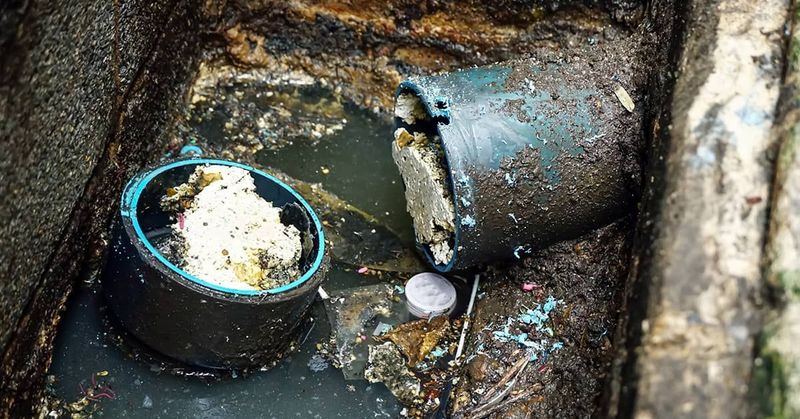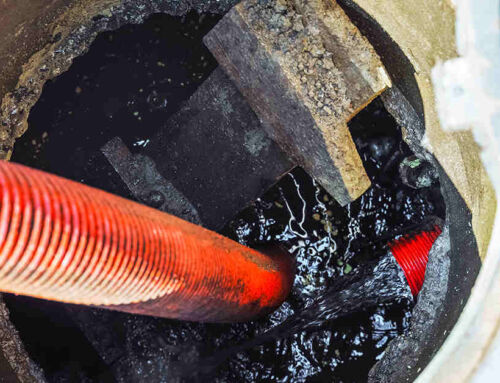Jump to…
Experience the Unblockers Difference
No call-out charges
Emergency response call-outs available
Available anytime 24/7
Expert, local engineers
Fixed price, no hidden charges

Key Points
The Importance of Drain Integrity
A collapsed drain can pose serious risks to your property’s foundation and overall safety. Early detection and swift action are essential in preventing more severe damage that could lead to costly repairs.
What is a Collapsed Drain?
A collapsed drain is a failure in the drainage system where pipes have broken or caved in, typically caused by age, blockages, or external pressures such as heavy traffic or tree roots.
Recognising the Signs of a Collapsed Drain
Unusual Odours
Persistent sewage smells may indicate a severe blockage or collapse, as normal flow is disrupted, causing waste to stagnate.
Slow Drainage and Recurrent Blockages
If drainage consistently slows down or you experience repeated blockages despite efforts to clear them, this could suggest structural problems within the pipes.
Damp and Structural Damage
Excessive moisture, mould growth on walls and floors, or visible cracks in the building’s foundation can all signal that leaking from a collapsed drain is affecting the structure.
Visible Changes in Landscaping
Sinking soil, subsidence, or unexplained wet areas in the garden are often directly above a collapsed drain, indicating leakage and soil erosion.

The Consequences of Ignoring Collapsed Drains
Structural Damage to Property
Over time, untreated collapses can lead to significant structural damage, including foundation issues that are expensive and complex to repair.
Health Risks
Stagnant sewage can lead to health hazards, attracting pests and promoting the growth of harmful bacteria and moulds.
Increased Repair Costs
Delaying repairs can lead to worsening conditions, which are more disruptive and costly to address later on.z

Professional Solutions for Collapsed Drains
CCTV Drain Surveys
Professionals often use CCTV surveys to inspect the inside of drainage pipes, accurately identifying the location and extent of the collapse.
Pipe Relining and Excavation
Depending on the damage, specialists might recommend relining the pipes, which is less invasive, or full excavation to replace the collapsed sections.
Regular Maintenance Checks
Engaging professionals for regular inspections can help detect early signs of wear or damage before they evolve into significant problems.
Preventive Measures to Protect Your Drains
Regular Cleaning and Maintenance
Keeping drains clear of blockages and regularly checking for signs of wear can significantly reduce the risk of collapse.
Avoid Planting Deep-Rooted Trees Near Pipelines
Tree roots can invade and damage pipes, leading to collapses; careful landscaping can mitigate this risk.
Monitor Water Usage and Waste Disposal
Being mindful of what goes down the drain and avoiding disposing of inappropriate materials can help maintain pipe integrity.
Safeguarding Your Property
Understanding the signs and consequences of collapsed drains and taking proactive steps to prevent them are essential for maintaining your property’s safety and value. Regular inspections, timely repairs, and adherence to best practices in waste management can keep your drainage system robust and fully functional.
FAQs
1.0 What causes a drain to collapse?
Common causes include ageing materials, tree root intrusion, ground movement, and heavy surface traffic that stresses the pipes.
2.0 How can I tell if my drain has collapsed?
Signs include unusual, persistent odours, slow draining, frequent blockages, damp patches on walls or floors, and unexplained sinkholes in your garden.
3.0 What should I do if I suspect a collapsed drain?
Contact a professional plumber or a drainage specialist to conduct a thorough inspection using tools like CCTV cameras to confirm the issue and recommend solutions.
Can collapsed drains be repaired without excavation?
Yes, less invasive methods like pipe relining might be used if the damage is not extensive. However, severe collapses often require excavation to replace the damaged sections of the pipe.
What preventive measures can I take to avoid drain collapses?
Regular maintenance, avoiding planting deep-rooted trees near drainage lines, and careful disposal of waste can all help prevent drain collapses.
Related Articles
READY TO MAKE YOUR ENQUIRY?
Get a quote for a drainage callout
Get a quote for a drainage callout
We have drainage engineers in your area now offering availability today.
Just leave a few details and our friendly drainage service team will call you right back.
We have drainage engineers in your area now offering availability today.
Just leave a few details and our friendly drainage service team will call you right back.
"*" indicates required fields

Need to speak to us right away? We have local engineers available now. Call 0808 303 0050
“Outstanding Service & Fast Repair”





